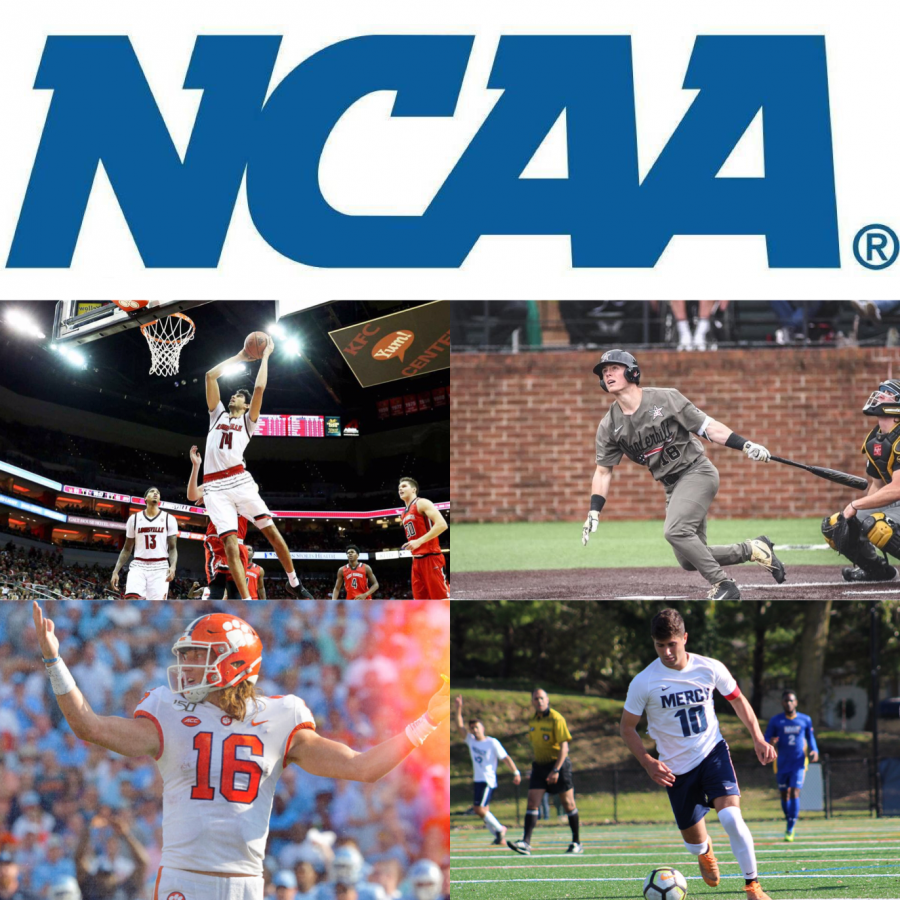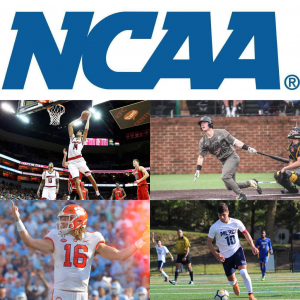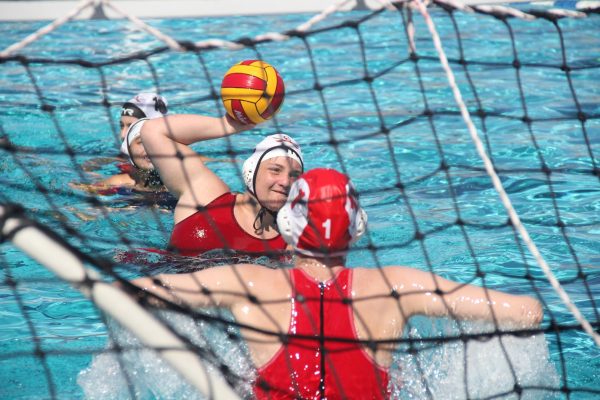Fair Pay to Play Act: A Step In the Right Direction
The National Collegiate Athletic Association (NCAA) unites several of the country’s biggest sports, including basketball, baseball, football and soccer, under one enormous sports umbrella.
Oct 9, 2019
The NCAA has multiple rules that must be followed by the student athletes to be eligible to participate in college sports. It is no secret, however, that tension has quickly risen recently between the NCAA and their college-level athletes because of one rule stating that college athletes are not permitted to be compensated from their names, brand deals or likenesses.
As of Sept. 31, 2019, California passed the Fair Pay to Play Act, which could change the course of college sports forever, making it illegal for colleges in California to deny their student athletes the opportunity to be compensated for their identities. This act is a great opportunity for collegiate athletes because they now get a chance to be paid for their hard work; they put themselves and their futures at risk every night to bring income for their school and receive nothing in return. This act also allows them to have endorsement deals and grow their brands for their future endeavors.
“I support the act because student-athletes work vigorously towards their sports and academics. This money can help them out in numerous ways especially when most college athletes do not have much to live on. Let them make money off of their own names,” sophomore Alan Morffi said.
With the passing of this act, collegiate athletes across California will now be given the opportunity to be paid while under scholarship. This is great for the players because many athletes that play at the collegiate level do end up becoming stars in the spotlight, and they bring in an abundance of viewership, attendance and cash to their schools. However, they receive none of it. If it is their hard work and talent being recognized, they must be compensated for it in some way, shape or form.
Many student athletes put themselves in harm’s way every single time they step onto the court or field. In very physical sports, such as football and basketball, where contact is more than a guarantee, the risk of injury rises every night. Take basketball phenom Zion Williamson, for example, who recently signed with the New Orleans Pelicans after playing for the Duke University Blue Devils during his freshman year.
Williamson was in the midst of a stellar season for the Blue Devils in 2019 and, in a game against North Carolina, his shoe broke under him, forcing him to leave the game. Duke ticket prices were through the roof that year, and Zion walked away with none of the proceeds, even after risking his health to bring unparalleled popularity to his school’s sports team.
In this regard, the Fair Pay to Play act is a great tactic because now, college athletes have the chance to make an even bigger name for themselves, and this in turn will help them remain successful after college. Along with that, endorsement opportunities also open the door for extra ways to be paid, since scholarships do not cover all of the costs of living.
“I love the fact that the student athletes are now given the chance to be paid in California. Although it is not the whole country, it is a start,” sophomore Kamila Campaneria said.
Now, there are valid arguments stating why collegiate athletes should not be paid. These state that the scholarships athletes earn to receive an education at their university are forms of payment for their talent. However, they fail to see is that most players under the NCAA do not ever end up going pro, meaning that they do not ever get the chance to truly get paid for their athletic abilities.
If these athletes are representing their universities and getting recognition for their hard work from third parties, that goes beyond what pertains directly to their scholarships. Collegiate athletes deserve the chance to be paid in more than just scholarships if they have the opportunity.
The tension between college athletes and the NCAA is growing by the day and some action will need to be taken eventually. California is taking a step in the right direction by passing the Fair Pay to Play Act as collegiate athletes will now be given the chance to earn money and be fairly compensated for their play, especially considering that many student athletes risk their health daily to make a profit for their school. This also gives student athletes a chance to grow their brand through endorsement deals.
The passage of this act should motivate other states to pass similar legislation, giving college athletes across the country a chance to earn money and increase their individual popularity. Ultimately, the Fair Pay To Play Act will pave the way for the rights of student-athletes across the country, one step at a time.
[powr-twitter-feed id=417535bb_1570587705115]
















